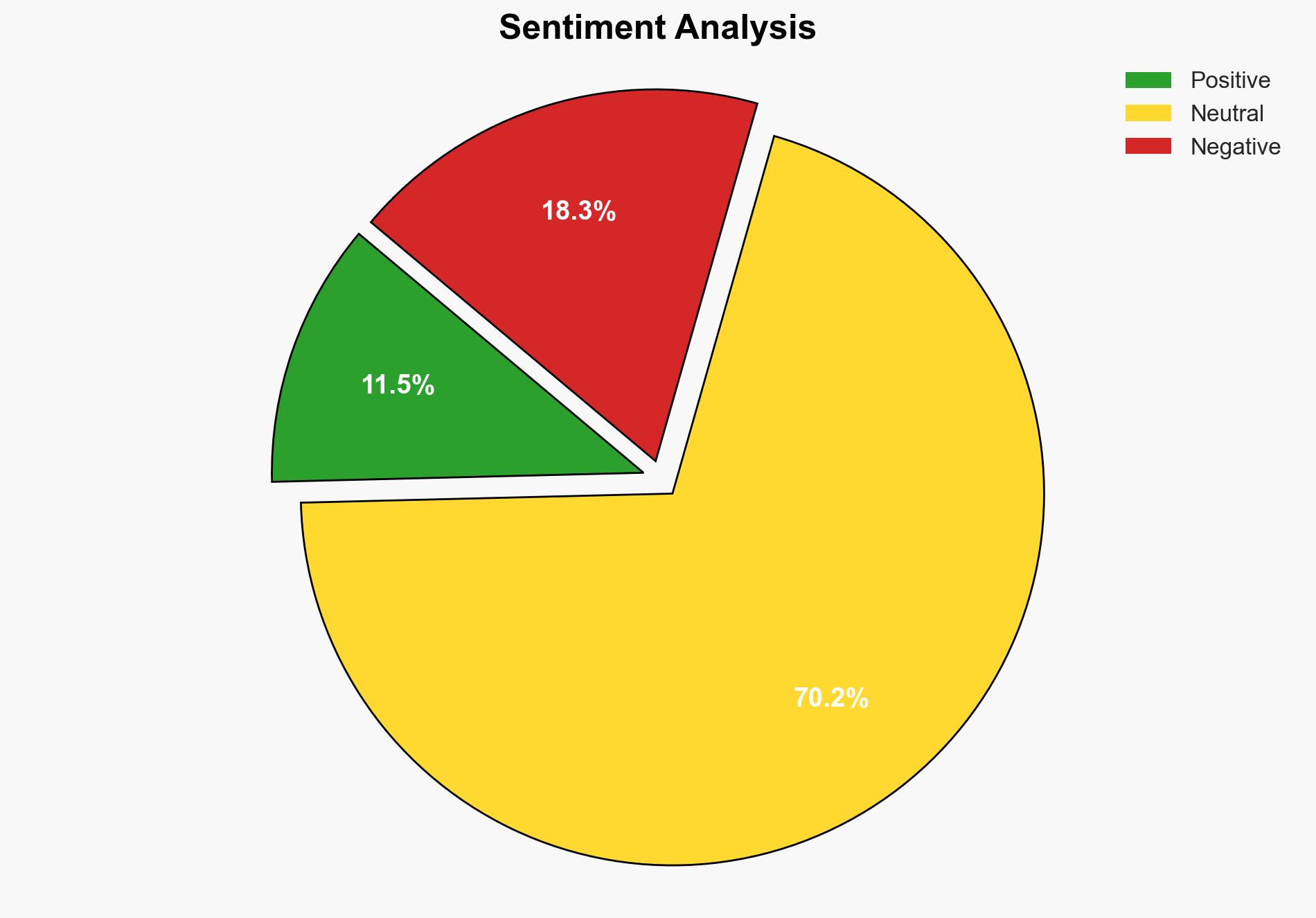Taiwan-based hacking group engages in persistent cyberattacks against Chinese mainland cybersecurity firm – Globalsecurity.org
Published on: 2025-03-18
Intelligence Report: Taiwan-based hacking group engages in persistent cyberattacks against Chinese mainland cybersecurity firm – Globalsecurity.org
1. BLUF (Bottom Line Up Front)
A Taiwan-based hacking group, identified as the Poison Vine Group, has been engaging in persistent cyberattacks against Chinese mainland cybersecurity entities, notably targeting the Qi Anxin Group. These attacks are characterized by the use of spear-phishing emails and water hole attack methods aimed at government, military, and scientific research institutions. The primary objective appears to be intelligence theft. The Ministry of State Security (MSS) has been actively monitoring these activities, identifying vulnerabilities in weak password protections. Immediate action is recommended to strengthen cybersecurity measures.
2. Detailed Analysis
The following structured analytic techniques have been applied for this analysis:
General Analysis
The Poison Vine Group, operating from Taiwan, has been identified as a persistent threat actor targeting Chinese mainland organizations. The group employs unsophisticated yet effective methods, such as brute force attacks on weak passwords and the registration of new domain names for phishing attacks. The attacks are strategically aimed at amassing personal data for intelligence purposes. The MSS has traced these activities over several years, highlighting the group’s focus on exploiting vulnerabilities in routers, cameras, and smart home devices.
3. Implications and Strategic Risks
The ongoing cyberattacks pose significant risks to national security, regional stability, and economic interests. The targeting of military and scientific research institutions suggests a focus on acquiring sensitive information that could compromise national defense and technological advancements. The increase in geopolitical tensions could exacerbate these threats, potentially leading to escalated cyber warfare and economic disruptions.
4. Recommendations and Outlook
Recommendations:
- Enhance cybersecurity protocols by implementing complex password policies and regular security audits.
- Invest in advanced threat detection systems to identify and mitigate phishing and brute force attacks.
- Encourage collaboration between government agencies and private sectors to share intelligence and best practices.
Outlook:
Best-case scenario: Strengthened cybersecurity measures lead to a significant reduction in successful cyberattacks, safeguarding sensitive information.
Worst-case scenario: Continued vulnerabilities result in successful intelligence theft, impacting national security and economic interests.
Most likely outcome: Ongoing vigilance and incremental improvements in cybersecurity measures will mitigate some risks, but persistent threats will remain.
5. Key Individuals and Entities
The report mentions significant individuals and organizations involved in the cyberattacks, including Guo Yuandan and the Qi Anxin Group. The Ministry of State Security (MSS) and the Poison Vine Group are also central to the analysis.





